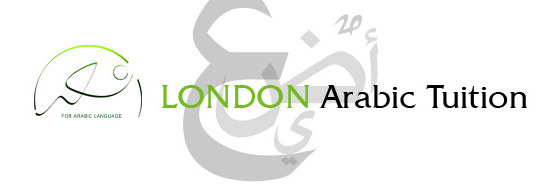So you want to speak Arabic! This is an admirable goal and a very useful one. Arabic is the fifth most common language in the world with 230 million speakers. Not only do these speakers live in many cities in the US, but if you travel to the Middle East, most of the people you will interact with speak Arabic.
When learning to speak Arabic, it’s fine to approach the language as you would any other foreign language, that is, by starting with the alphabet and verb tenses. But as you will soon learn from our Arabic courses in London with Arabic, one of the most important aspects is its many phrases and expressions. If you want to actually use Arabic—in any capacity—you need to take the time to master the phrases and expressions.
Why are Arabic phrases so important?
Phrases are important in any language. They are the quickest way for a tourist to get around and the easiest way for a native speaker to express themselves. So what is so special about the phrases in Arabic? What makes them so essential?
For one thing, 30% of any Arabic conversation is made of up expressions and phrases. What this means for you, the learner, is that even if you understand every word they say, the combinations of some words probably don’t make any sense. For example, the phrase “Laa takol ham” literally means “don’t eat the worry.” That sounds funny when taken literally, but any native speaker knows that it means simply “don’t worry.” When you understand the cultural meaning of Arabic phrases, you will be able to communicate much more fluently.
Arabic phrases are also important because they display respect for the Arabic language and culture. If you have taken the time to figure out what Arabic speakers are really saying to each other, that means you have probably also taken the time to understand the people. In other words, you’re not rude or snobby. This subsequently opens doors to making friends and business relationships with native Arabic speakers.
Where to Start When Learning Arabic Phrases
Although Arabic phrases are made up of words that each have their own meaning, the phrase as a whole often has an altogether different meaning. Knowing these meanings indicates that you have spent time among Arabic speakers. Simply by using Arabic expressions, you communicate that you are a diligent learner and can relate to native speakers.
By now you might see why learning individual words of Arabic vocabulary isn’t going to help you learn Arabic phrases. So where can you start?
Perhaps the best way to start picking up Arabic phrases is to spend time in a location where only Arabic is spoken. This is easy to do in the Middle East, but if you are at home in the US, you may need to look for a market, restaurant, school, community centre, or other location where you know Arabic speakers spend time. If you have any friends who speak Arabic, you should ask them if they can introduce you to their friends.
If finding Arabic speakers to spend time with is impossible where you are, you may want to look at a list of common Arabic phrases and listen to pronunciations of them. Then you can practice by listening to an Arabic radio station or watching a movie in Arabic. You can also watch videos online of native Arabic speakers teaching their audience to use Arabic phrases.
Although eventually you will get to the more confusing phrases like “don’t eat the worry,” you could start with simple everyday words that anyone can understand like “Yes” and “No.” Once you have mastered these basic phrases, hearing longer and more complicated words in Arabic is helpful.
Another tip is as you’re learning the basic phrases, take the time to understand the basic linguistic marks of the language. For example, study the feminine and masculine markers, the plural markers, and the verb endings for different pronouns.
Common Phrases
Some common expressions that may help you get familiar with Arabic include:
- Ma3lish (That’s fine)
- bil-hanā’ wa ash-shifā’ (bon apetit)
- riḥlah saʿīdah (bon voyage)
- Marhaba Beekum (Welcome to all of you)
- insh’allah (God willing)
- Mabrouk (Congratulations and blessings on you)
These are just a few common expressions in Arabic. There are hundreds if not thousands more. Your duty in your Arabic studies is to gather as many phrases as you can. You will build a reputation of a learner who wants to know as much as possible and is humble enough to listen to others while they learn. We are professional teachers of Arabic based in London. If you’d like to find out more about our Arabic courses in London, don’t hesitate to contact us.




Leave a Reply
You must be logged in to post a comment.